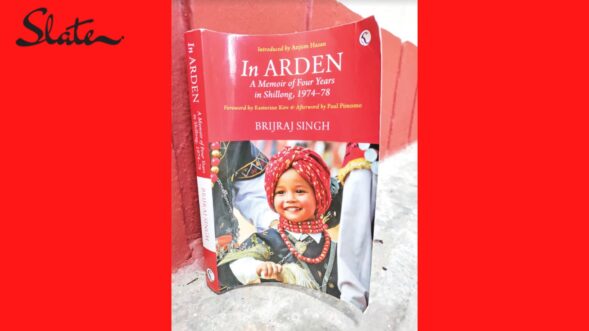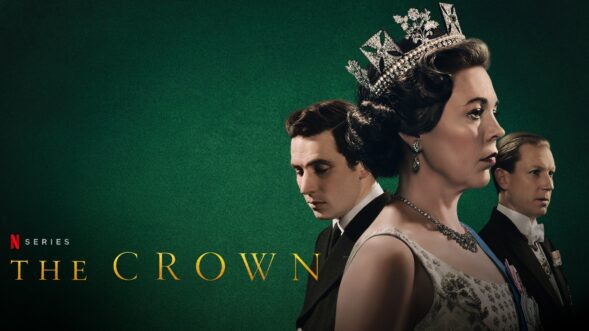
By Eleanor A Sangma
As the month of June arrives each year, the rainbow hues of the Pride flag take centre stage, with the queer community celebrating the diverse sexual and gender identities that the colours represent.
The LGBTQ+ Pride Month is a legacy formed in the aftermath of the 1969 Stonewall Uprising in New York City. It has gained momentum over the last 50 years and is now a global phenomenon representing the struggles of the queer community for equality under the law.
Our reporter, Eleanor A Sangma gets candid with Tanisha Das and Rupsa M Marak for perspectives on the queer community in Garo Hills.
In Tura, a small group of friends also celebrates Pride Month. For Das, it’s a compact community. “It’s not like we go marching around town. We wish ourselves and spend time with each other, with our flags,” she says.
We also paint rainbows on our bags,” Marak chimes in, adding that there aren’t a lot of people out of the proverbial closet to be able to organise a march.”
Das considers herself an ally to the LGBTQ+ community, adding that, along with her friends, she wants to actively fight for their cause and make same-sex marriage legal in India. “We’re fighting towards this goal and it begins with conversations”.
Marak identifies as a proud lesbian and a gender non-conforming individual, with pronouns, “they/them”.
Having gone through several struggles, they want to help others come out without many obstacles.
Confessing that they were ‘insanely homophobic’ initially, Marak says, “The internalised misogyny made me part of the problem. This grew into hatred towards girls and queer people.”
Reflecting on their behaviour turned them into an ally – the pipeline they went through to realizing their true self.
“Fighting for the cause made me realise I’m part of the community. Then, I realised I’m attracted towards girls,” they add.
Marak laughs, recalling the moment of epiphany, adding they came out to themselves and their friends.
Marak finally came out to their father in the 10th grade. “While he was cool, I cried as it was hard. He and my sister accepted me right away, though my mother is still reluctant and doesn’t voice her opinion against it. My family is accepting.”
Echoing their sentiment, Das agrees their friend group was very homophobic at one point.
“We actually made fun of people in the community,” she says, with a regretful smile, adding how they may have been influenced by what they were or were not taught, emphasising how this gap in the system could be a factor that breeds homophobia, rampant amongst people they were once close to.
“We were never taught about the history of the queer community in schools. We never learned about it, even though it is part of the history of our country and the world.”
The people both grew up with were also hostile towards them. Bullying – trolling isn’t new to them, considering the comments they read on socials, including a group chat, titled, anti-gay, targeting the community.
Although they have now learned to accept it, they were initially heartbroken to see their close ones behaving that way. Das adds, “We’re young and the future of the country. If this generation has this kind of mindset, how’s the future going to look?”
Complete strangers on the streets would look at Marak from head to toe, and ask intrusive questions in the form of, “Are you a girl or a boy?”, “What’s in your pants?” or “Why are you dressed like that?”.
“I’ve even got hand clapping gestures from people associated with the trans-community in India,” they tell me.
People’s behaviour took a heavy toll on them. Their own mother had to deal with problematic behaviour because of what Marak represents. “She didn’t tell me, but I knew and it hurt to see her that way.”
Many people do not accept Marak, even bullying them while out on the streets. “Somebody had spat in my direction once. But that’s life as an openly queer person.”
Hatred is not innate, it is learned. People forget they are humans because they don’t conform to society’s idea of ‘normal’.
Das says the bullies mostly prey upon the closeted, who struggle with their identity.
“You’re not sure about your identity and preferences. You’re scared to come out because of parental and societal pressure, including the bullying culture,” she explains.
During that period, queer members are mostly alone because they cannot talk to their parents or friends, instead, have to deal with everything by themselves.
Even allies of the community can become the target. People try to manipulate them, insinuating they must be gay or trans for supporting the LGBTQ+ community.
“By supporting the community, we’re doing something good. So, just let us do that,” Das says.
Friends of Marak and Das have gradually been working towards a change, in their own way.
For years, the word gay has been used as an insult by people, both outside and inside the community – internalised homophobia at its best. Their friends’ group has reclaimed the word, considered a slur.
“We say ‘very gay’ as a compliment, be it their fashion sense, the literature they read or the way they carry themselves. It’s reclaiming the power in words,” Marak says.
Systemic change, therefore, has to start with the education of children, including sex education, in the right way. The whitewashing of history has hidden many important facts from people. In Indian history itself, there have been queer personalities, including emperors, who loved men.
Teaching the accurate history of our country falls upon the schools; it’s their duty. That’s where the change has to start.
Referring to the current narratives, Das states, “Learning about homosexuality later in life will lead to statements like it’s a western influence that seeped into India gradually. Before colonisation, our country was very accepting of homosexuality,” Das says, with a smile.
“Sculptures in the ancient temples of Khajuraho and the Konark Sun Temple clearly depict homosexuality and queer relationships. Yet, the belief is society changed only after the British,” she adds.
The draconian Section 377, which dates back to the colonial rule criminalising homosexuality, was struck down in 2018 by the Supreme Court.
“If all of India comes together and is accepting of positive change, we won’t be Westernised. In fact, we’ll be going back to our roots,” Das reiterates.
The importance of having a professional counsellor in schools who will not judge but help children work through suppressed emotions cannot be overstated.
Das maintains, “Eventually, the child has to figure out everything on their own, but they’ll get that encouragement through the counsellor, helping them towards self-acceptance.”
Where parenting is concerned, both want parents to understand the years of internal struggle queer people go through, even before coming out.
She (Das) says, “For your children’s sake, try to educate yourself. Read more queer books, watch shows related to the community, or talk to more queer people. If a child gets parental support, they can fight and win all battles against the world.”
“I think it’s on the parents. As soon as they are planning to have a child, they should accept them for who they are,” Marak adds.
They feel people should think twice before having a child if accepting their children as queer, disabled, or different from what is considered the norm is a challenge.
They tell me, “For queer people like us, the truth was painted in black and white – you should be straight, be a girl, and wear this and that. Then, we found the courage to live our own truth. Deep down, we felt it was not right. That’s not my truth, that’s your truth.”
Marak feels being queer should not have been a political statement or an act of rebellion. “I don’t want my existence to be some form of rebellion; I’m just simply existing. But if we want our future generations to live a happy life, we have to fight,” they add.
A few words can never do justice to their story, but this has been written in hopes that people realise the LGBTQ+ community exists, and that their existence is just as valid as anyone else’s.






